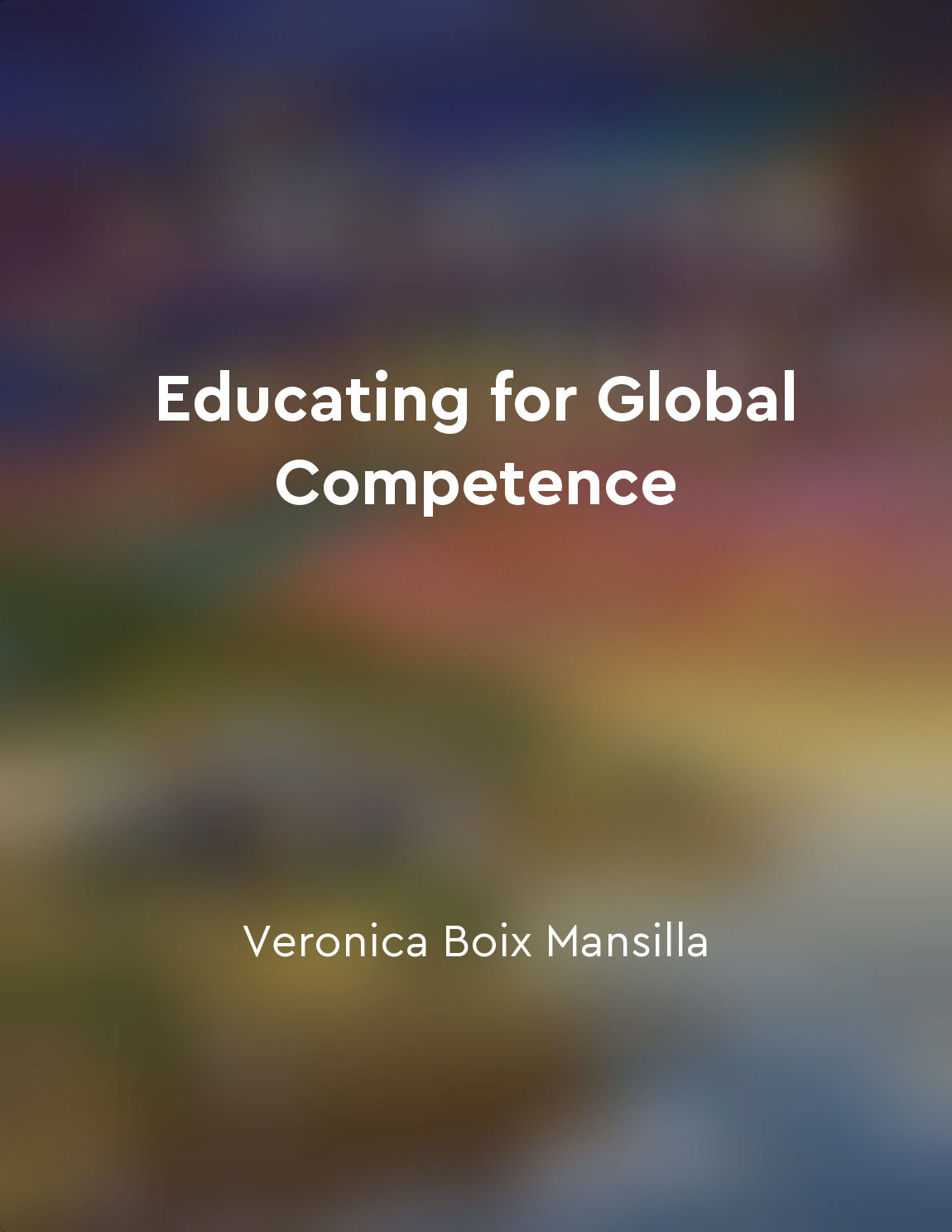Students should be exposed to diverse perspectives and experiences from "summary" of Educating for Global Competence by Veronica Boix Mansilla,Anthony Wells Jackson
To educate for global competence is to prepare students for a world that is increasingly interconnected and interdependent. In this complex and rapidly changing landscape, it is essential for students to be exposed to diverse perspectives and experiences. By engaging with a variety of viewpoints, students are able to develop a more nuanced understanding of the world around them. This exposure helps them to appreciate the diversity of human experiences and to recognize the common humanity that unites us all. When students are exposed to diverse perspectives, they are challenged to think critically and creatively about the issues that shape our world. By encountering different ways of thinking, students are able to expand their own mental frameworks and consider alternative solutions to complex problems. This process of intellectual growth is essential for developing the skills and knowledge needed to navigate the challenges of the 21st century. Through exposure to diverse experiences, students are able to develop empathy and cultural sensitivity. By interacting with individuals from different backgrounds, students learn to appreciate the richness of human diversity and to value the unique contributions that each person brings to the table. This exposure helps students to become more open-minded and adaptable, qualities that are essential for success in an increasingly globalized world. In order to effectively educate for global competence, it is crucial for educators to create learning environments that support exposure to diverse perspectives and experiences. This can be achieved through a variety of pedagogical approaches, such as incorporating diverse voices into the curriculum, facilitating cross-cultural exchanges, and promoting collaboration across difference. By intentionally exposing students to diverse perspectives and experiences, educators can help to cultivate the skills and dispositions needed for success in an interconnected world.Similar Posts
Influence of technology on society
Technology has become an integral part of our society, shaping the way we live, work, and interact with one another. In the yea...
Embrace conscious decisionmaking
Embracing conscious decision-making is about taking ownership of the choices we make in our lives. It's about recognizing that ...
Understanding cognitive processes
Understanding cognitive processes involves delving into the intricate workings of the mind, exploring how individuals perceive,...

Witnessing the impact of globalization
The reality of globalization hit us head-on as we journeyed around the world. We saw how interconnected our world has become, w...
Create inclusive learning environments
Creating inclusive learning environments means intentionally designing classrooms and educational experiences that embrace and ...

Cultivating ethical reasoning is a key aspect of global education
One crucial element of global education lies in the cultivation of ethical reasoning. This involves developing the ability to t...

Students should be exposed to diverse perspectives and experiences
To educate for global competence is to prepare students for a world that is increasingly interconnected and interdependent. In ...

Educators must cultivate students' ability to navigate diverse perspectives
To prepare students for an increasingly interconnected world, it is essential for educators to focus on developing their abilit...
Implement culturally relevant content
Implementing culturally relevant content in teaching is crucial for engaging students from diverse backgrounds. This involves i...
